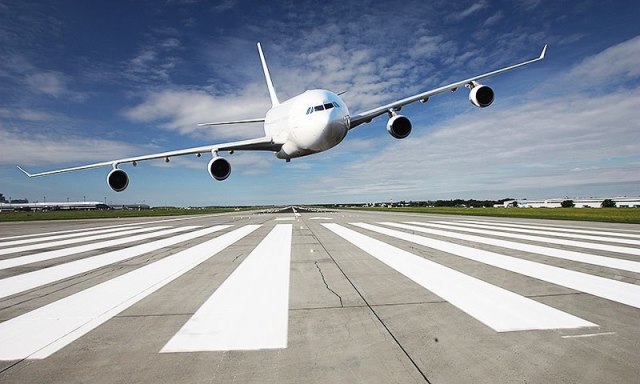KARACHI: Afeef Zara Airways has obtained its Regular Public Transport (RPT) license from Civil Aviation Authority (CAA) and plans to commence its domestic flights in six months, Afeef Group Chairman Rashid Ahmed Siddiqui confirmed to Profit.
The latest entrant in the country’s domestic aviation market, ‘AZA’, is the third local carrier to have obtained an RPT license in the last one-and-a-half years – the other two being ‘Air Sial’ and ‘Serene Air’ of which the latter already commenced its operations in January 2017.
The company will start domestic flights between Karachi, Lahore, and Islamabad with three aeroplanes, the minimum fleet requirement of CAA for an RPT license, according to Siddiqui.
AZA is a subsidiary of Karachi-based Afeef Group, a leading packaging (disposable) manufacturer in the country with business segments comprising Afeef Packages and Printing, Afeef Builders, Afeef Furniture and Trading, and Afeef Foods.
The company is one of the largest players in the packaging sector with a clientele that includes, but is not limited to, Unilever, Nestle, McDonald’s, KFC, Hardee’s, OPTP, Alpine Gelato, Mövenpick, Pakistan International Airlines, Air Blue, and Nueplex Cinemas.
Starting from a grocery store in 1976, Siddiqui moved into the printing press business in 1982 and set up a packaging factory in 2000 in Korangi Industrial area, which would go on to become the group headquarters. Eight years later, he expanded this packaging facility to ensure all printing and packaging operations were done under a single roof.
The packaging giant is entering the aviation sector at a time when the industry is facing an intense price war on the back of growing competition. Besides international carriers offering more direct flights to different Pakistani cities, new airlines have also jumped in to tap into the country’s aviation market. Apart from Serene Air, Air Sial and AZA, there are reports of Askary Air, Liberty Air, and Go Green to be in the process of obtaining their RPTs, which will further intensify the competition.
According to a forecast by global trade body International Air Transport Association (IATA), intra-Pakistan air traffic will grow at more than 9 per cent per annum over the next two decades, outpacing the global growth rate which is projected to remain under 5 per cent.
Because of its growth potential to be driven by the country’s demographics and economic growth, Pakistan has become an important market for the aviation industry both local and international. The government of Pakistan provided further incentive to international carriers by liberalising the sector through its National Aviation Policy 2015.
Though a large supplier of packaging material to the state-owned PIA and a couple of other airlines, the group doesn’t seem to have any exposure in the core aviation business. Siddiqui didn’t disclose his detailed plan, but a source familiar with the matter said the airline’s top management will include his son and Zara, daughter of Siddiqui’s business partner who has an academic background in aviation.




